- Home
- James A. Michener
The Bridge at Andau Page 5
The Bridge at Andau Read online
Page 5
Around ten o’clock that night young Csoki was wasting time in the museum park, hoping to meet a pretty girl, when he heard shots over toward the radio station. Thinking some soldiers might be in trouble, he hurried over to find that AVO men in the radio building were firing at the crowd.
“Get away from there!” a stranger shouted, pushing Csoki back toward the museum area. When he recovered himself, he started once more to explore the situation at the radio building, but a fresh volley pinned him in a doorway in Brody Sandor Street and he thought, “I better get back to the barracks and get some guns.”
At that point he did not know on whose side he ought to fight, or even what the sides were, but he felt instinctively, “If anyone’s going to shoot at AVO men, I’d like to be in on it.”
It was only about four blocks to the barracks, and he ran at top speed and shouted, as he leaped up the stairs to the second floor, “There’s a big fight on at the radio building. The AVO are shooting people.”
He dashed into his room, rumpled things up a bit looking for whatever weapons he could find, and suddenly stopped when he heard a suspicious sound in the hall. Poking his head out gingerly, he saw a man in plain clothes point a pistol at the head of a soldier who was trying to grab him. The civilian fired and the soldier dropped dead.
Sergeant Csoki—his nickname is pronounced as if spelled Chokey—ducked back into room 19, slammed the door and thought, “That must be an AVO man!”
Quickly he grabbed an armful of grenades, pulled the pin on one and, crawling along the floor, opened his door gently and pitched the grenade at the gunman. There was a shattering explosion as the sound of the grenade echoed back and forth along the hallway. Running to the fallen gunman, Sergeant Csoki rifled his pockets and found that he was Major Szalay of the AVO. Shouting at the top of his voice, he warned the rest of the soldiers, “The AVO are trying to take over.”
The soldiers instantly mobilized for an AVO hunt, and had they started a few minutes later, Kilian Barracks would have been lost, for they intercepted some hundred and fifty AVO men moving in to take over the headquarters and the ammunition it housed. There was a furious fight, for the AVO men were highly skilled in rough tactics, but in the end Csoki and his companions beat back the assault.
“We killed a good many of them with grenades,” the sergeant says. “Some were captured, and if anybody recognized them as particularly bad, we beat them up. Most of them escaped.”
Csoki had reason to hate the AVO, for during his army career each unit he had served with had contained several AVO men, and they had instinctively distrusted his jovial attitude toward life. “You’ve got to be serious when you’re a communist,” an AVO man warned him. He was not yet a communist, but since he wanted to become an officer, he knew he would have to join the party. So he had held his temper and done what the AVO men told him. Now he was glad to see some of them dead in the hallways.
At this point the Kilian Barracks was infiltrated by a different kind of intruder. Hordes of civilian fighters, driven off from the assault on Radio Budapest, pushed their way into the barracks, crying, “There’s a great fight on. We’ve got to have arms.”
The Kilian officers were naturally distrustful of all civilians—it was their job to keep civilians in line—so they rejected the pleas and ordered the citizens out, but one elderly man with blood on his face said sternly, “The AVO are killing us.”
A boy wormed his way through the crowd and caught Csoki by the hand. “The AVO have big guns on the roof,” he pleaded.
Still the officers refused to issue guns, until a soldier in uniform ran up, shouting, “It’s a very big fight. We’ve got to have some guns.”
Csoki and some of the enlisted men shouted, “Let’s give them guns!” And under this pressure the headquarters staff yielded and handed out machine guns and ammunition.
When this was completed the crowd withdrew and the men of Kilian were free to contemplate the course they had launched upon. There was no elation, no childish celebration over their defeat of the AVO. “We knew the Russians would attack us in the morning,” Csoki says, “and our officers said, ‘When they come, they’ll come in tanks.’ ”
This likelihood did not scare the men because, fortunately, the Russian leaders of the Hungarian communist army had taught its men a favorite Russian trick. Said one burly officer, “You can stop a tank even if you have no guns. You do it with gasoline bombs.” And he was thoughtful enough to show the Hungarians precisely where a tank is most vulnerable. “If you stand here,” he had explained, “the tank’s guns can’t reach you. Then throw your cocktail in here, and the tank will burn out.”
So all that night Csoki and his companions made gasoline bombs. They took bottles, filled them with gasoline and capped them tightly. Then through a small hole in the cap they forced eight inches of cloth tape, which would serve as a fuse when lit by a match just before the bottle was tossed onto a tank. No one in the barracks had any illusions. This was going to be a bitter fight.
At four o’clock that morning the first Russian tank appeared. “Here they come!” a lookout on the fourth floor shouted. “Tanks!”
He was wrong. It was not tanks, but only one. And it was not a tank proper, but a heavily armed reconnaissance car, with machine-gun hatches, plate armor and six rubber-tired wheels. Coming through the darkness—lit only faintly by accidental lights from nearby houses—the armored car seemed more like a boat wandering inland from the Danube. But it was a deadly boat, manned by Russians who were determined to put down any possible rebellion at the Kilian Barracks.
As it drew near the barracks, coming down Ulloi Street from Calvin Square, Sergeant Csoki and six silent soldiers stood in the darkness of the barracks roof, waiting tensely with gasoline bombs ready to be lit and thrown. It was strange, in a way, that they should be there. The soldiers had conducted no formal discussion: “Shall we fight the Russians?” Officers had made no fiery speeches: “We will drive the Russians out of Budapest.” There had only been an unspoken, universal understanding: Everyone hates AVO men, Russians support the AVO men. Therefore the Russians are as bad as the AVO men, therefore if you fight one, you’ve got to fight the other. As for defending Russia, or communism, no one even thought about that.
Sergeant Csoki, waiting breathlessly for the Russian reconnaissance car to come beneath him, whispered to his men, “Now they get it!” At the last unbearable moment they lit their fuses, held the bombs for a moment, then pitched them into the black night air.
In the marvelous arcs of sputtering flame they dropped toward the reconnaissance car. The first bomb hit the pavement of Ulloi Street and exploded like a giant night flower blooming suddenly from the asphalt. It must have blinded the Russian driver, for the car lurched toward the wall of the barracks, where it absorbed in quick succession three bombs, which set the entire vehicle ablaze.
Like a foundering boat now, it staggered down Ulloi Street beyond the barracks, where its own gasoline tank exploded. This was the first recorded Russian casualty.
Sergeant Csoki expected that Russian pressure would increase with daylight, and he was right, for at nine o’clock on the morning of October 24 the battle for Kilian Barracks began in earnest. In the next two hours fifteen Russian reconnaissance cars assaulted the barracks, but with little luck.
“We couldn’t understand why the Russians didn’t use tanks,” Csoki says. “Because we murdered the cars. You see, we had a good position across the street, too. There was a block of houses and inside the square formed by these houses there was a big moving-picture house, the Corvin Cinema. Some of us got on top of this Corvin block of houses, and my men stayed on the two top floors of the barracks. With practice we would pitch our bombs right into the cars, and inside of two hours we had destroyed nine of them.”
One car, keeping far to the western side of the boulevard, dodged the bombs and unloaded round after round of heavy fire into the barracks, and many soldiers were killed.
“Blow up that
car!” everyone shouted, and a rain of gasoline was showered at it, but the driver was most skillful and dodged his car to safety. From its new position it lobbed more fire into the barracks, and there were more demands for revenge, but no one could hit the car, and after expending all its ammunition, with terrifying results, it waddled down the boulevard, leaving many dead Hungarians in its wake.
In the silence that followed the end of the Russian attack the soldiers of Kilian met and took a solemn oath: “If one of us seems about to surrender to the Russians, we will shoot him.” Csoki says, “It was very quiet when we said this, because we were thinking, ‘If a car can do so much damage, what will a tank do?’ ” They had not long to wait for an answer.
But when the tanks did arrive, the young men in Kilian had on their side a tested leader of enormous courage. Csoki first saw him on the roof at Kilian, a whip-thin man with a brown belt across his chest and a Russian-type fur cap outlining his deeply etched face. It was Colonel Pal Maleter, a soldier with a wild, heroic background. He had first been an officer for the fascist Horthy but had drawn away from such dirty business in disgust, becoming, in 1944, a leader of the underground fight against the Nazis in Hungary. He emerged from this experience something of a national hero and was carted off to Moscow by the Russians as the typical Hungarian army man fighting for communism. More than any other Hungarian soldier, he was petted and pampered by the Russians, but now, when he had seen them driving their tanks against his own people, he had come of his free will to Kilian Barracks to take command.
Sergeant Csoki smiled at his grim, jut-jawed visitor and said, “Lots of gasoline on this roof.”
Maleter studied a few of Csoki’s bombs and said, from deep experience gained in Russia, “The fuses should be longer for tanks.”
“You think they’ll send tanks?” Csoki asked.
“Soon,” Colonel Maleter said. This brave officer, who was to play so striking a role in the revolution, looked down the silent avenues and said, “They’ll come up here, Sergeant. Be ready.” And he disappeared down the steps.
But before the first tank arrived, Kilian Barracks received yet another kind of visitor. Tough young kids from all over Budapest, hearing of the battle, insisted upon joining it. Carrying old guns, handmade bombs, even swords, they streamed into the barracks as if reporting for duty. At the same time another large group of would-be defenders took up positions in the Corvin Cinema block, just across Ulloi Street, and these recruits were to be of crucial importance in the fight ahead, for some brave young mechanics dashed from the cinema into Ulloi Street and began dismantling a Russian vehicle that had not been completely destroyed. From it they managed to salvage a high-velocity antitank gun and a quantity of ammunition. Hauling the gun through an archway leading into the movie house, this gang of desperate young men shouted, “Somebody fix it. Then bring on the tanks.”
The situation at the barracks was now this. The building stood at the southeast corner of Ulloi Street, one of the major arteries radiating eastward from the Danube, and Ferenc Boulevard, a segment of the middle circular boulevard. Across Ulloi Street, on the northeast corner of the intersection, stood the block of houses which hid the Corvin Cinema; but in the middle of the block, and cutting right through the houses, was a big archway from which the defenders could fire at the Russians. Throughout the grim fighting which followed, determined soldiers ran back and forth across Ulloi Street, at great risk, to assault tanks from whichever side of the street offered the best advantage.
The upper floors of the barracks were manned by Sergeant Csoki and men like him. The roof of the Corvin was staffed by daring young civilians with stacks of gasoline bombs. And in what was to prove a masterful tactic, the cellars of each building were jammed with wild-eyed kids of twelve to sixteen, each burning with desire to destroy a Russian tank. Obviously, Ulloi Street was going to be tough negotiating, even for a well-armed Russian tank.
But broad Ferenc Boulevard presented a much different problem, for here the tanks could maneuver, and as the battle proved, here a resolute tank commander could entrench himself, mow down with machine guns boys and civilians who tried to burn him up, and almost at leisure pump high-velocity shells into both the barracks and the cinema. To destroy a tank on the boulevard meant that a man—or a boy—would have to crawl right up to its mouth and throw the gasoline in directly under the guns. Only the very brave need attack a boulevard tank.
For several hours the Kilian men awaited the inevitable attack, and in time they grew almost impatient to test their skills. Then a boy serving as lookout on the street below shouted, “Here it comes!” Hoarse cheers greeted his ominous news.
Across the Petofi Bridge from Buda came a single creaking, groaning, menacing Russian tank. Once across the bridge, it turned north and started up the boulevard. It was armed with two heavy machine guns, thick armor plate and a huge protruding rifle that waved gently in the bright afternoon air as the tank rocked back and forth on its resolute journey. This was a formidable tank, and although it moved slowly on its ponderous revolving tracks, it was capable of swift action. Of this tank Sergeant Csoki says, “Although it made a lot of noise, it seemed to be silent, because we were all silent. And the boulevard was empty. And there was nobody at any of the doors or windows. You didn’t even see a boy running anywhere.”
Many soldiers from the Ulloi Street side of the barracks ran over to the boulevard side to see the enemy come, and they licked their lips in dry fear as the monster approached, its guns silent. But the watchers had no time for nervous speculation, for now a great shout went up from the Corvin Cinema, where watchers had detected two more Russian tanks coming down the boulevard from the direction of the burned-out Szabad Nep bookstore to the north.
And then, to cap the terror, Sergeant Csoki, maneuvering his bomb throwers in the barracks, looked down Ulloi Street toward Calvin Square to the west and there he saw four more giant tanks bearing down upon the barracks. Kilian was therefore about to be brought under direct fire from seven tanks, each thirty-four tons of destructive power.
“Here they come!” Csoki said solemnly. This time there was no cheering.
It was a bright afternoon, and the October sun made the roofs of Budapest shine warmly. Some of the soldiers in Csoki’s crew were in shirt sleeves, and they waited tensely, their jaw muscles showing their fear, as the seven tanks drew into position. For the first ten minutes, the Russians had everything their own way. The heavy guns did terrible damage to the barracks and practically shot away one of the corners. More than seventy defenders were killed and at least a hundred and fifty badly wounded. It looked as if the Russians would win.
But at this very moment, when it seemed as if the tanks could stand off with impunity and methodically rip the barracks apart, a street-car conductor, still wearing his municipal uniform, saved the day. For some time this undiscovered genius had been sweating in the interior square before the Corvin Cinema with the sadly wrecked antitank gun which had been rescued from a burned-out Russian vehicle. At first the gun had seemed beyond salvation, but this demon street-car conductor had stayed at his job.
Now he announced tentatively, “I think it’ll work.” A gang of young mechanics wheeled the gun into position, but the street-car man said, “You better stand back, because it may explode.” Then he laboriously trained his masterpiece upon a Russian tank and let go.
Csoki says, “Best thing I ever saw! The tank hoisted up in front, hesitated a minute, and exploded inside.”
This action so astonished the Russians that they momentarily withdrew to consider what had happened. Hurriedly scanning the streets, they could see no sign of the Corvin gun, which had been hastily drawn back by scores of young men acting as horses.
Cautiously the Russians advanced a second time, but now determined Kilian marksmen with high-powered rifles started finding weak spots in their armor. There were some deaths inside the tanks, but what was worse, one tank found its way partially blocked by the destroyed tank and two reco
nnaissance cars which had been killed earlier in the day. For two fateful minutes it hesitated, and in that time Csoki’s men launched a gasoline barrage from the roof, while heroic boys from the streets of Pest dashed swiftly under the guns and pitched other bombs onto the tank at close range. There was a giant sigh as the gasoline burned out the tank and left it a smoking wreck.
Five Russian monsters, still hammering away at the barracks, now remained. From Ulloi Street and the boulevard they poured a punishing fire of shells and bullets into the Kilian walls, until portions of the four-foot-thick masonry threatened to collapse.
Again it seemed as if no Hungarian power could reach these tormentors, for tantalizingly they kept out of range of the Corvin Cinema gun. But at this juncture the boys hiding in the cellars put into operation one of the neatest maneuvers of the battle. In preparation for just such an impasse, when their elders would be powerless, these boys had strung a thin rope across Ulloi Street, from the cellar of the barracks to a cellar in the Corvin block, where they had strung together, on one end of this rope, a batch of five large hand grenades.
Now was the time to use their secret weapon. As a tank, after having cleared the upper stories of both buildings with deadly machine-gun fire, started down Ulloi Street, the boys, jockeying their rope carefully from each side of the roadway, tried to maneuver their grenades into the path of the tank tracks. They succeeded. The grenades exploded with a mighty woosh, the tracks were blown off the cogs and the tank ground to a helpless halt.

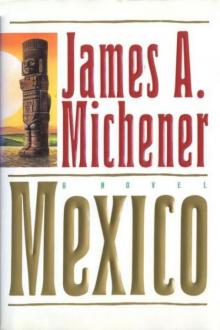 Mexico
Mexico The World Is My Home: A Memoir
The World Is My Home: A Memoir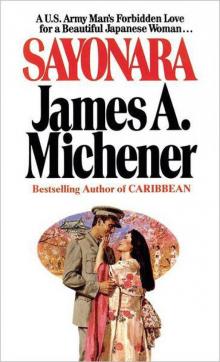 Sayonara
Sayonara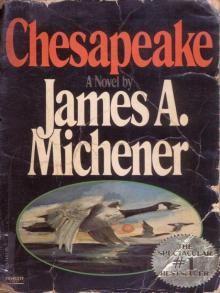 Chesapeake
Chesapeake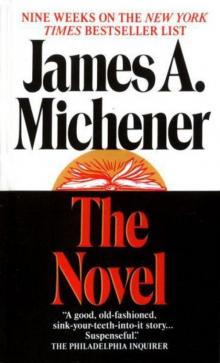 The Novel
The Novel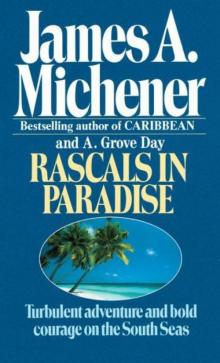 Rascals in Paradise
Rascals in Paradise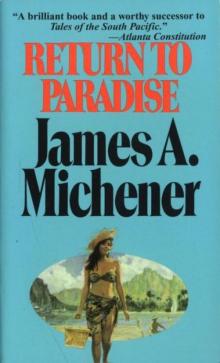 Return to Paradise
Return to Paradise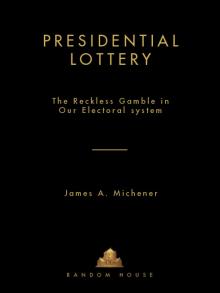 Presidential Lottery: The Reckless Gamble in Our Electoral System
Presidential Lottery: The Reckless Gamble in Our Electoral System The Source
The Source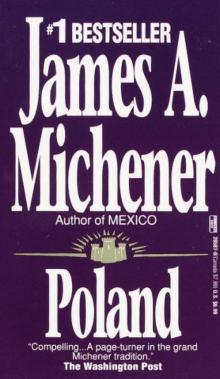 Poland
Poland Space
Space Caravans
Caravans Creatures of the Kingdom: Stories of Animals and Nature
Creatures of the Kingdom: Stories of Animals and Nature Iberia
Iberia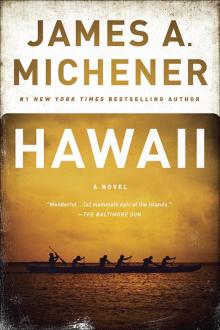 Hawaii
Hawaii The Watermen: Selections From Chesapeake
The Watermen: Selections From Chesapeake Report of the County Chairman
Report of the County Chairman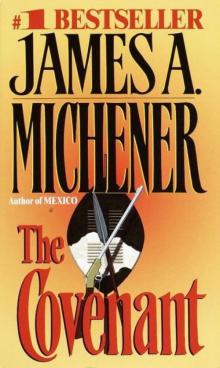 The Covenant
The Covenant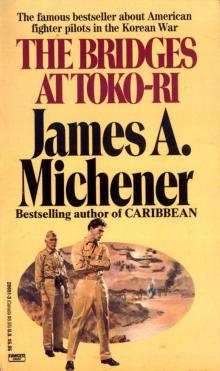 The Bridges at Toko-ri
The Bridges at Toko-ri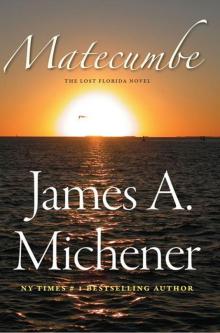 Matecumbe
Matecumbe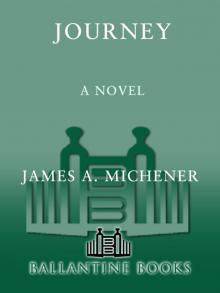 Journey: A Novel
Journey: A Novel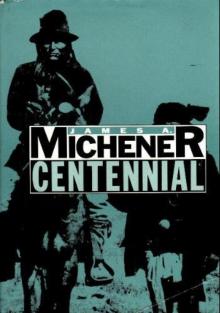 Centennial
Centennial Sports in America
Sports in America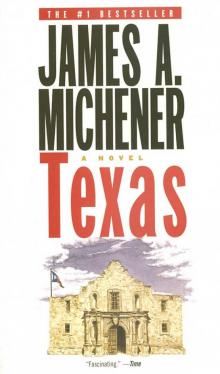 Texas
Texas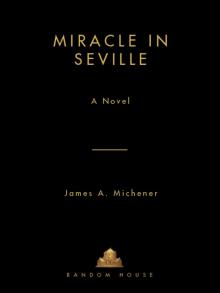 Miracle in Seville
Miracle in Seville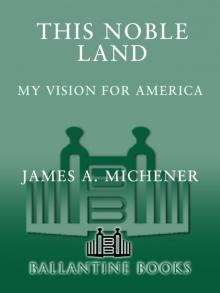 This Noble Land: My Vision for America
This Noble Land: My Vision for America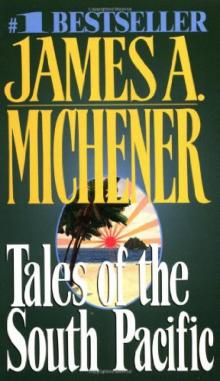 Tales of the South Pacific
Tales of the South Pacific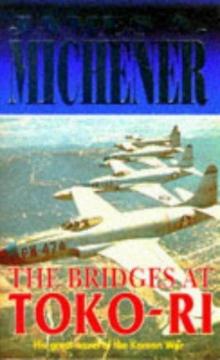 Bridges at Toko-Ri
Bridges at Toko-Ri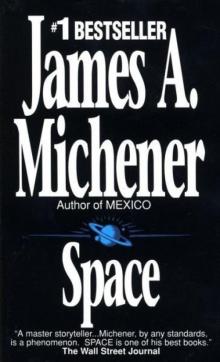 Space: A Novel
Space: A Novel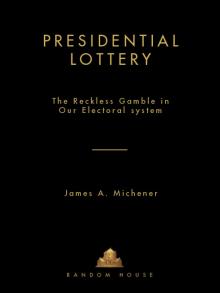 Presidential Lottery
Presidential Lottery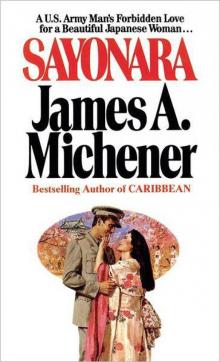 Sayonara: A Novel
Sayonara: A Novel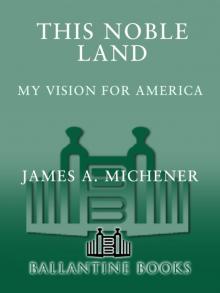 This Noble Land
This Noble Land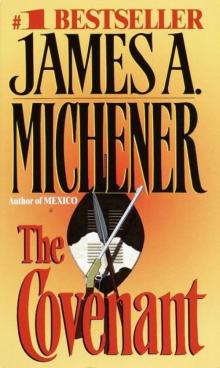 The Covenant: A Novel
The Covenant: A Novel Miracle in Seville: A Novel
Miracle in Seville: A Novel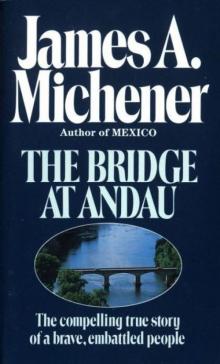 The Bridge at Andau
The Bridge at Andau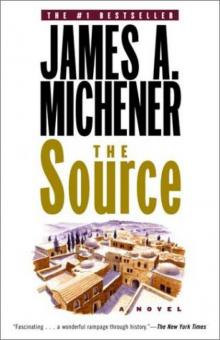 Source
Source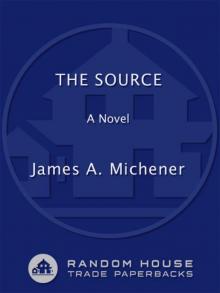 The Source: A Novel
The Source: A Novel Journey
Journey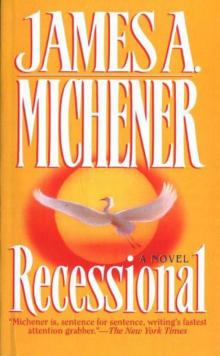 Recessional: A Novel
Recessional: A Novel Legacy: A Novel
Legacy: A Novel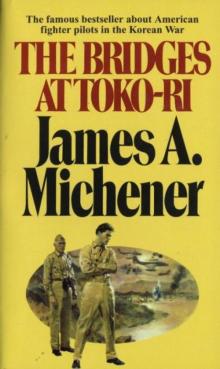 The Bridges at Toko-Ri: A Novel
The Bridges at Toko-Ri: A Novel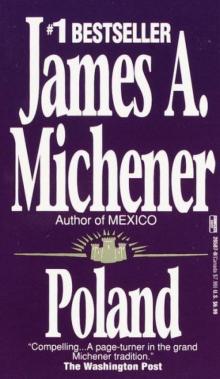 Poland: A Novel
Poland: A Novel